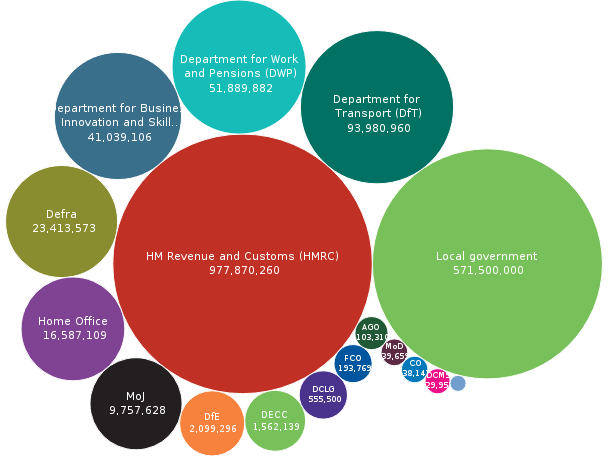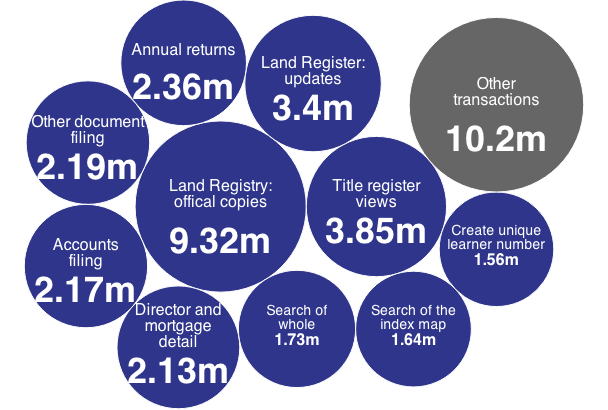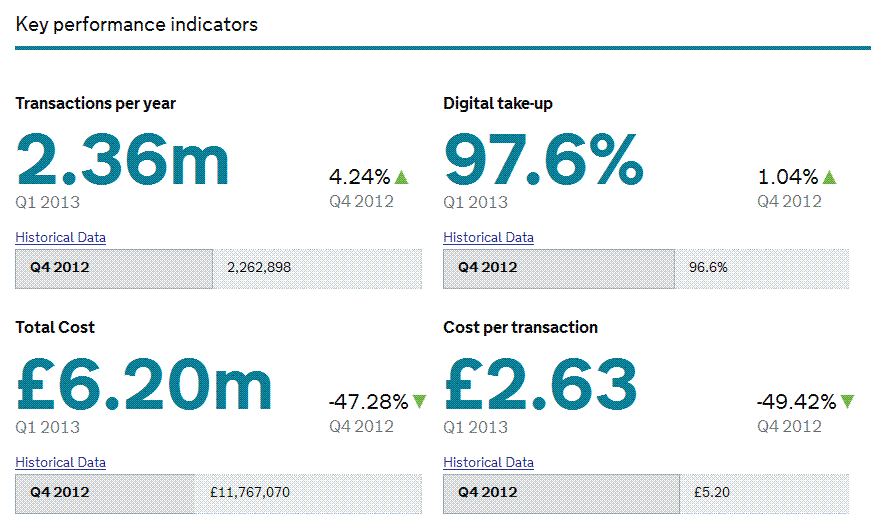Transforming services so that they become Digital by Default is a major challenge for all government departments.
The devolved nature of BIS and its network of agencies and arm’s length bodies, means that the challenge of providing high-quality digital services to its customers is a particularly difficult one for the department.
Transactional services typically result in a change in the records held by government organisations, and involve an exchange of information, money, licences, goods or services. In BIS these include filing company returns, applying for an apprenticeship vacancy and applying for student finance.
The challenge facing BIS can be seen by looking at the Transactions Explorer tool on GOV.UK. In the calendar year 2012, BIS and its Partner Organisations (POs) carried out 40.5 million transactions. This accounted for just over 3% of all central government transactions by volume.
The picture is very different if you look at the number of different services provided. In 2012 BIS was responsible for more than 35% of the transactional services listed by the tool.
BIS is responsible for a number of high volume transactional services including those carried out by Companies House, the Land Registry and the Skills Funding Agency.
The total soon tallies off, however, leaving a long tail of services with less than 10,000 transactions per year, which amount to more than 60% of the total. This represents a big challenge for the department if it is to transform all of its services to meet the Digital by Default service standard and provide high quality digital services to its customers.
Exemplar projects
The work of the department in transforming its transactional services is being led by a series of ‘exemplar’ projects:
- Intellectual Property Office Patent Renewals: making it quicker and easier to renew a patent online – in alpha stage.
- Insolvency Service Redundancy Payments: enabling persons who have become redundant following an insolvency to apply for redundancy payments online – in discovery stage.
- Land Registry Property Register: enabling persons interested in a property to search an online map to find out more about it – in alpha stage.
- National Apprenticeship Service Apprenticeship Applications: making it quicker and easier to advertise or apply for an apprenticeship online – in discovery stage.
- Student Loans Company Student Finance: providing an improved online service for persons who have, or are applying for, student loans and grants – live.
These projects are designed to acts as catalysts in the department, building confidence at all levels in our ability to deliver excellent digital services, and showcasing achievements and the benefits of digital transformation.
The experience of working with the Government Digital Service on the exemplar projects will in time improve the delivery of services to all BIS customers.
Transaction Explorer
The Transactions Explorer tool shows the number of transactions carried out per year for each government service. The type of transactions recorded includes those taking place face to face, by post and phone, and digitally via e-mail, web chat and online digital services. For high volume services (above 750,000 pa) and exemplar services, the tool also shows the average cost per transaction and digital take-up. The data covers a rolling 12-month period and is updated on a quarterly basis.
The data below shows the return for annual returns to Companies House for the period 1 January to 31 December 2012.
Publishing key performance data for transactions will enable departments to identify areas where cost savings can be made, make informed decisions on interacting with users over different channels, and identify opportunities for moving services to lower cost digital by default delivery models.
Stay up-to-date by signing up for email alerts from this blog.



Leave a comment